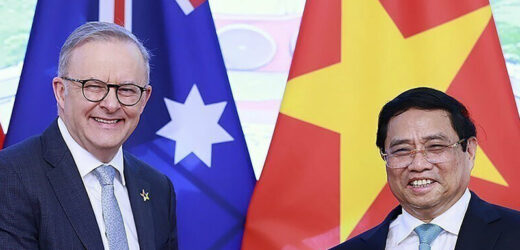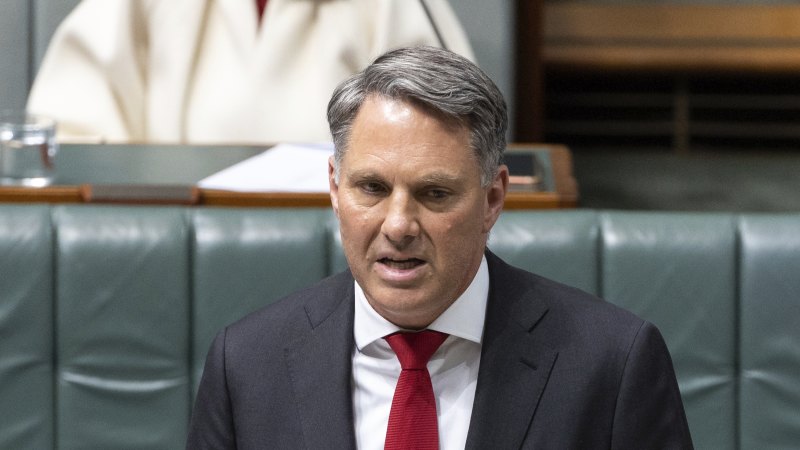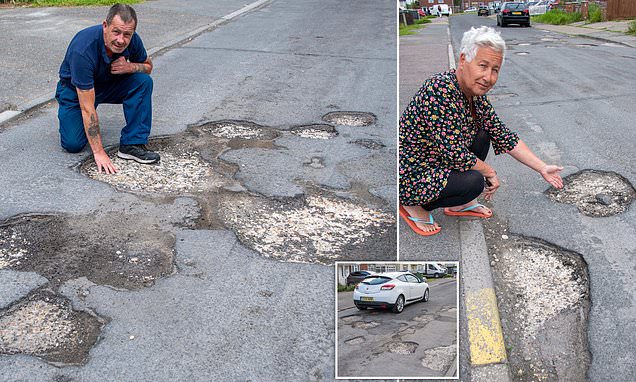Save articles for later
Add articles to your saved list and come back to them any time.
Hanoi: Prime Minister Anthony Albanese has vowed to take Australia’s relationship with Vietnam to the next level after agreeing to boost maritime co-operation and opening the door to Vietnamese workers plugging skills shortages such as in aged care.
One of the fastest growing economies in Asia and a key player in pushing back against Beijing’s claims in the South China Sea, Vietnam has emerged as an increasingly important partner in the region for Australia.
Now, half a century after the last Australian troops left what was then known as Saigon following an 11-year involvement in the Vietnam War, Albanese’s government wants to seal the carefully built friendship in the next year by upgrading relations to a comprehensive strategic partnership – one of the highest levels of diplomatic ties.
Hanoi has signed such deals with only four others – China, India, Russia and South Korea – but if Australia joins the exclusive list it would reflect rapidly growing trade and its support for Vietnam in disputes with China over territory at sea.
Albanese met here on Sunday with Vietnam Prime Minister Pham Minh Chinh, who said the pair had discussed the importance of encouraging freedom of navigation operations in the South China Sea, where China has seized and militarised islands, and agreed to exchange information and bolster maritime cooperation.
Australian Prime Minister Anthony Albanese and Vietnamese Prime Minister Pham Minh Chinh shake hands in Hanoi.Credit: AP
“We had discussions about national sovereignty,” Albanese said. “We want to see a stable, secure and prosperous region. That’s why this visit is important. Vietnam is an important friend of Australia’s.
“We support freedom of navigation in the South China Sea and we express that view consistently.”
Chinh also talked of working towards Australian-Vietnamese ties progressing to the highest level of partnership – and of the views shared about China’s sweeping claims and intimidatory behaviour in the resource-rich waterway.
“Our conversation today is very important for us to discuss the issues of mutual concerns and exchange views on international issues in order to strengthen even further, the co-operation and partnership in the coming years,” he said.
Albanese was speaking in Hanoi after meeting with members of the Australian under 20 women’s football team, which in Vietnam for a qualifying tournament, and with the Vietnamese women’s national side, which is headed to the World Cup in Australia and New Zealand next month.
Prime Minister Anthony Albanese and the Vietnamese PM Pham, meet the Australian women’s under 20 soccer team, who are in Vietnam for AFC qualifying.Credit: Chris Barrett
Earlier, he almost suffered a Joe Biden-like slip at the top of the stairs of a podium in front of the presidential palace as he was welcomed by children waving Australian and Vietnamese flags, a guard of honour and a military band that blasted out both national anthems.
But he held his feet and the final day of his three-day venture to south-east Asia went smoothly, signing a slew of agreements.
They included a $105 million Australian package to support Vietnam’s sustainable economic growth and transition to clean energy, a commitment to regular meetings between trade ministers and a pledge to deepen links in combatting transnational crime and financing of terrorism. Two Vietnamese airlines also used the Australian leader’s visit to announce an extension of direct flights in and out of Melbourne and Brisbane.
Albanese, meanwhile, suggested Vietnamese workers could help fill gaps in Australia’s labour market such as in aged care.
“We want to make sure that when we look at our immigration, we get the right people, in the right places, with the right skills,” he said.
“We know that in some of the areas where there are skills shortages, Vietnam can be of assistance.”
Albanese was meeting on Sunday afternoon with President Vo Van Thuong, National Assembly chair Vuong Dinh Hue and Communist Party of Vietnam General Secretary Nguyen Phu Trong, the most influential figure under Vietnam’s four pillars of leadership, before attending an official dinner on Sunday night.
He laid a wreath in the morning at the tomb of the country’s modern founding father, Ho Chi Minh.
Get a note directly from our foreign correspondents on what’s making headlines around the world. Sign up for the weekly What in the World newsletter here.
Most Viewed in World
From our partners
Source: Read Full Article




